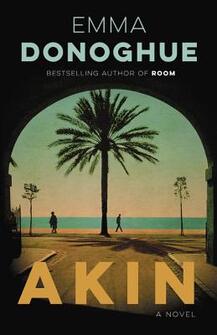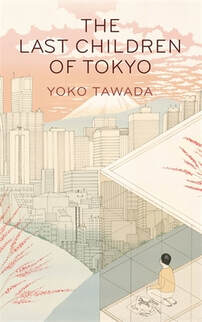Akin by Emma Donoghue
In planning this trip, Noah didn’t expect to be travelling with his eleven-year-old great-nephew; likewise Michael didn’t expect, with his father dead and his mother in prison, to be sharing a room with an elderly relative he’s never met. But the differences between the two main characters aren’t only generational: although they live in the same city, culturally they’re worlds apart.
Neither has much respect for the other’s know-how – Noah’s in the language of France, art and chemistry; Michael’s in brands, selfies and games on his screen – bringing a poignancy to those moments they manage to connect. They’re trapped in the other’s company, bickering about how to spend their shared time. As with Emma Donoghue’s bestseller Room, the situation intensifies the ordinary demands of parenting, in this case a fragile boy on the cusp of adolescence in the custody of an ill-prepared older man.
While the relationship is the novel’s strength, I found the setup, while carefully managed, hard to believe. Or perhaps I didn’t want to believe that a social worker would prefer to send a child abroad, away from all that’s familiar, with an elderly man unaccustomed to children, rather than in state foster care. Is that an indictment of US social services? Is the UK as bad? These concerns coloured my reading of the first half of the novel, but the storytelling picked me up later on.
As well as the demands of childcare in later life[1], the novel also explores war photography[2] and the fears of torture, collaboration and resistance when researching a parent’s secret life in Nazi-occupied territory[3]. It also brings a sharp focus on present day inequalities and the ability of the rich to turn a blind eye to the injustices perpetrated on the poor. Thanks to Picador for my review copy.
[1] See also Domenico Starnone’s Trick
[2]Reminding me of The Girl with the Leica by Helena Janeczek
[3] As does Madeleine Bunting’s Island Song.
The Last Children of Tokyo by Yoko Tawada translated by Margaret Mitsutani
At over a hundred, Yoshiro has cared for his great-grandson, Mumei, since birth. Although the boy himself seems contented, it’s painful to watch his struggles to dress himself, to walk more than a few paces and even to eat. It’s hard to take in sufficient nutrients when there’s a strong risk of vomiting or choking and the food itself might not be safe.
The novella follows the old man and sickly child, with multiple deviations into the past and hypothetical future, over the course of one morning as, having returned from his run, Yoshiro gets Mumei ready for school. It’s more metaphor than story: the audacious plan to find a cure featured in the blurb isn’t given as much space as the gruelling mechanics of the day-to-day. But it isn’t all gloomy: despite their serious health problems, the children seem to have a fair amount of fun when they finally get to school.
It’s a dreamlike fable about how the older generation has stolen their children’s future by poisoning the planet – and perhaps some other themes more specific to Japanese culture that I didn’t quite get. Thanks to Granta books for my review copy.























 RSS Feed
RSS Feed





















